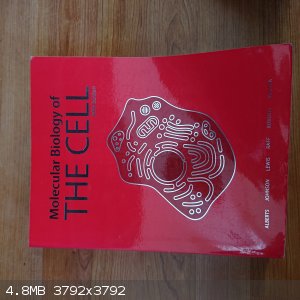Volitox Ignis
Hazard to Self
 
Posts: 53
Registered: 28-1-2016
Member Is Offline
Mood: No Mood
|
|
Mechanism of Protein Identification
I have stumbled upon the Wikipedia article on the Schick Test. Here is the article in question: https://en.wikipedia.org/wiki/Schick_test
Note the description of a positive result:When the test results in a wheal of 5–10 mm diameter, reaching its peak in 4–7 days. The control arm
shows no reaction. This indicates that the subject lacks antibodies against the toxin and hence is susceptible to the disease.
It would appear as though, even if one's immune system encounters the toxin for the first time, it is still capable of somehow differentiating
between the inactivated toxin and the active toxin, since the control arm shows no reaction.
This made me wonder: What is the mechanism by which a person's immune system differentiates between proteins present in the human body, foreign
proteins that are not harmful, inactivated harmful proteins, and foreign proteins which are harmful and need to be neutralized, assuming that the
person in question lacks any food allergies and autoimmune diseases?
|
|
|
Tsjerk
International Hazard
    
Posts: 3032
Registered: 20-4-2005
Location: Netherlands
Member Is Offline
Mood: Mood
|
|
The body uses antibodies to recognize proteins, and modified proteins, eg glycosylated proteins. And less commonly non-proteins.
The test described gives a red spot because the toxin is toxic. It does the job whether or not the immune system responds to it. The control only
becomes red when the immune system recognizes the inactive toxin, because although inactive, the immune system doesn't see the difference between the
active and inactive.
There are two types of immunities, innate and adaptive, the one we are talking about here is the adaptive.
You will probably find this interesting.
|
|
|
Volitox Ignis
Hazard to Self
 
Posts: 53
Registered: 28-1-2016
Member Is Offline
Mood: No Mood
|
|
Quote: Originally posted by Tsjerk  | The body uses antibodies to recognize proteins, and modified proteins, eg glycosylated proteins. And less commonly non-proteins.
The test described gives a red spot because the toxin is toxic. It does the job whether or not the immune system responds to it. The control only
becomes red when the immune system recognizes the inactive toxin, because although inactive, the immune system doesn't see the difference between the
active and inactive.
There are two types of immunities, innate and adaptive, the one we are talking about here is the adaptive.
You will probably find this interesting.
|
I know what antibodies are. What I am basically asking is "Upon encountering some proteins for the very first time, how does the immune system "Know"
what proteins to produce antibodies against and which ones to leave alone?"
[Edited on 11-2-2020 by Volitox Ignis]
|
|
|
Tsjerk
International Hazard
    
Posts: 3032
Registered: 20-4-2005
Location: Netherlands
Member Is Offline
Mood: Mood
|
|
That question is a bit harder to answer. I could have a few years ago but I'm a bit rusty on the subject now. I will have a look.
Edit: the book in the picture has a perfect chapter on it, I wanted to photograph it for you but the chapter is not actually printed but provided as a
DVD which I lost somewhere.

[Edited on 11-2-2020 by Tsjerk]
|
|
|
Tsjerk
International Hazard
    
Posts: 3032
Registered: 20-4-2005
Location: Netherlands
Member Is Offline
Mood: Mood
|
|
You can download everything up to chapter 24 here. The 25th chapter seems illusive.
But this explains a lot.
and this
and this
Edit: Good God, I only realize now how much I studied for a single exam, I had to do chapter 15 to 25 for a one hour oral exam, got a 7.5/10 though.
Had to do it next to a full-time internship in 6 weeks. Well, those days are over. Long live the 9 to 5 job.
[Edited on 11-2-2020 by Tsjerk]
[Edited on 11-2-2020 by Tsjerk]
|
|
|
wg48temp9
National Hazard
   
Posts: 784
Registered: 30-12-2018
Location: not so United Kingdom
Member Is Offline
|
|
Quote: Originally posted by Volitox Ignis  | [
I know what antibodies are. What I am basically asking is "Upon encountering some proteins for the very first time, how does the immune system "Know"
what proteins to produce antibodies against and which ones to leave alone?"
[Edited on 11-2-2020 by Volitox Ignis] |
Its complicated but fascinating including the history of how it was all figured our, I suggest you read the attached paper on the subject
Attachment: imsy-bse0600275.pdf (1.5MB)
This file has been downloaded 649 times
PS: The wiki antibody page has some history on the subject and a favourite of mine, how the billions of different antibodies are coded for when we
don't have a genome big enough to contain genes for each of them.
[Edited on 2/11/2020 by wg48temp9]
I am wg48 but not on my usual pc hence the temp handle.
Thank goodness for Fleming and the fungi.
Old codger' lives matters, wear a mask and help save them.
Be aware of demagoguery, keep your frontal lobes fully engaged.
I don't know who invented mRNA vaccines but they should get a fancy medal and I hope they made a shed load of money from it.
|
|
|
Tsjerk
International Hazard
    
Posts: 3032
Registered: 20-4-2005
Location: Netherlands
Member Is Offline
Mood: Mood
|
|
Quote: Originally posted by wg48temp9  |
how the billions of different antibodies are coded for when we don't have a genome big enough to contain genes for each of them.
|
That is the key answer.
|
|
|